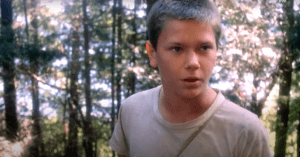We’ve established through previous responses that our values drive our perseverance, which then in turn allows us to gain better understanding of the world and ourselves. However, sometimes we hit a point where we can no longer recognise our values. This leaves us feeling lost and hopeless, making the climb out of this ‘hole’ particularly challenging. So, when we can no longer lean on the values that once drove our resilience, how do we then persevere through difficult times?
Through my own personal experiences, I can recognise that both communication, and the support of others, played a critical role in helping me to persevere through my challenges when I had turned a blind eye to my values. This doesn’t seem coincidental, as by opening up and communicating my struggles, I was then allowing the people around me to support me, which they were unable to do while I was keeping my struggles to myself. I remember opening up to my swimming coach a couple of months ago, highlighting the issues I was facing while training myself. These issues arose as the result of me gradually neglecting my values over a long period of time. I got to the stage where I couldn’t even recognise my original values, I had neglected them for so long. Although I was terrified that my coach would see me as a failure, I thought that it was important to admit that I was in this ‘hole’ rather than just continuing to deny it. We re-evaluated, and though leaning on his guidance and advice, I was able to get myself back to a place where I had a healthy balance between hard work and enjoyment. This wouldn’t have been possible without the open communication between both parties, me being willing to accept and communicate my struggles, as well as his support and encouragement towards me.
This is not unlike several moments in ‘Stand By Me’, where the boys rely on one another for support and validation when doubting their own values. As an example, the audience often sees Gordie very self-critical and scathing of his writing ability. It’s only through Chris’s encouragement and belief in his creative and academic ability, that Gordie learns to have faith and see the value in his ‘gift’.
Denny, Gordie’s older brother, was a major supporter of his creative ability. When Denny passed away however, the film implies that Gordie lost his belief in his own significant creative ability, as well as his passion for writing, believing that his talent was “stupid…[and] a stupid waste of time”. As seen in the attached clip, it is through Chris’s encouragement and advice that Gordie begins to re-explore his creative side, later going on to tell one of his stories to the other three boys by the campfire, as well as eventually narrating the film itself. I can see the resemblance to my own experience, shared above, as when Gordie lost his value of writing and academic success, much like I lost my values relating to swimming, an open conversation with someone close, and then relying on their support and guidance, helped get both Gordie and I back to a place where we were able to re-discover our passions.

The clip above, showcasing the pivotal conversation between Chris and Gordie, uses a close-up, eye-level shot to illustrate the significance of the event. By having the camera at eye level, the audience almost feels a part of the conversation, helping them to resonate with what Chris is saying. The lack of both background diegetic and non-diegetic sound draws the attention solely on Chris’s dialogue as well. I explained that communication was essential to helping us persevere through difficult times, and the film techniques support this during this scene, putting all emphasis on the conversation between the two boys, avoiding any other distracting elements.